6. Dersu Uzala (1975) – 161 Minutes
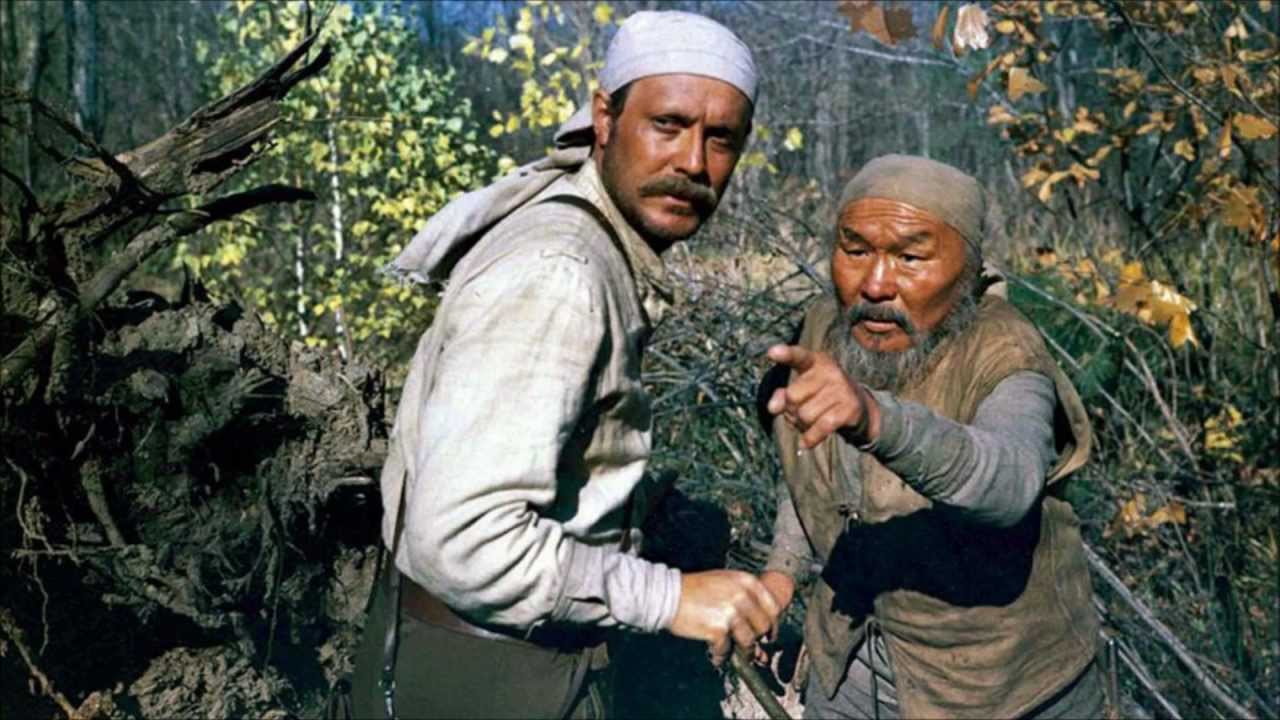
Dersu Uzala is an Academy Award winner for best foreign film directed by one of cinema history’s great film makers, Japan’s Akira Kurosawa. It couldn’t possibly lack for attention, right? Right? Actually, not right.
Kurosawa is held in such high esteem today, as he was in Japan in the 1940s and in that country and the rest of the world in the 1950s and early 60s. However, in the late 60s, he fell into a bad place. Times seemed to move on internationally and he was somewhat regarded as a glorious relic by the critics of the day and just a plain old has-been by the Japanese film industry (who had never been quite as sold on him as the rest of the world due to him seeming to be too western in his native country).
The worst blow came when he was fired from directing the Japanese sequences of what became the notorious big-budget bomb, Tora, Tora, Tora! (1970). Frankly, it drove him to try and commit suicide. Thankfully, he did not succeed but he might as well have in the view of the Japanese film industry, which offered no work to him. As he was recovering, an offer came to him from a most unexpected source: the government of the U.S.S.R, who wanted him to helm the first co-production between that country and Japan.
Some four years in production, Dersu Uzala concerns a stranded troup of Russian soliders being lead to safety by a native hunter and guide through his familiar and very hostile environment at the turn of the Twentieth Century. The theme is man vs. nature and also man learning to become one with nature and join together with others of dissimilar backgrounds.
It is a fine film and a wonderful looking one as well. Yet, the film is rarely included in detailed writings concerning Kurosawa such as Ikiru (1952), The Seven Samurai (1954) or even his post-comeback masterpieces such as Ran (1980), among many others. Perhaps the unhappy circumstances of the film’s making, or many viewers feelings about it being a Soviet-state financed production have kept it from being more appreciated. However, hopefully, time will help the film rise above such considerations and take its rightful place in the film cannon.
7. The Travelling Players (1975) – 230 Minutes
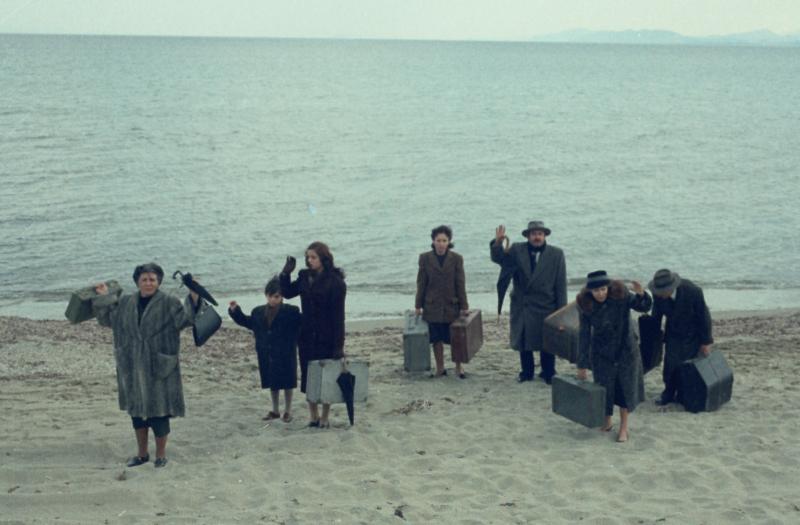
Though they may well never have met, Jacques Rivette and Greece’s finest film maker, Theo Angelopoulos, would have had a lot to talk about, if they had met. Both made films their own way and that way was long, long in the telling and unrushed, using this prolonged playing time to create a distinct psychological feeling in the viewer while creating complex and deep stories.
Quite often, Angelopoulos would use only a few extremely long shots dispersed over the course of lengthy films. However, this was not always to the tastes of everyone. When his Cannes award winner Eternity and a Day opened in 1998, more than a few critics couldn’t resist making the crack that the title was not only appropriate to the film but to the film maker’s career in general.
Perhaps his masterpiece (though all of his films have their partisans), The Travelling Players, in Angelopoulos’ preferred cut, runs north of 200 minutes. In a relatively quite few endless camera set-ups, it tells the story of a troup of…well, travelling players, going up and down the coast of Greece presenting a play concerning a shepherd.
However, the players, in their personal lives, are unwittingly enacting the story of the classic Greek tragedy The Orestia against a backdrop of war (World War II) and the chaotic aftermath of that war throughout the country with the more personal story amplifying the national one. That sounds weighty and, well, it surely is in the watching.
Greek cinema rarely gets the attention the film making of other countries such as France, Italy, or Germany routinely receive. Also, Angelopoulos is no easy breeze of a film maker. His films were always about something and big somethings. They all demand concentration and don’t let the viewer off the hook with lazy passages. Sadly, he never managed a big international box office hit for all the kind critical words he received. Perhaps that is why he is not as well known or as deeply discussed as he should be. Sadly, that loss is the world’s but rediscovery is always a possibility.
8. The Tree of Wooden Clogs (1978) – 186 Minutes
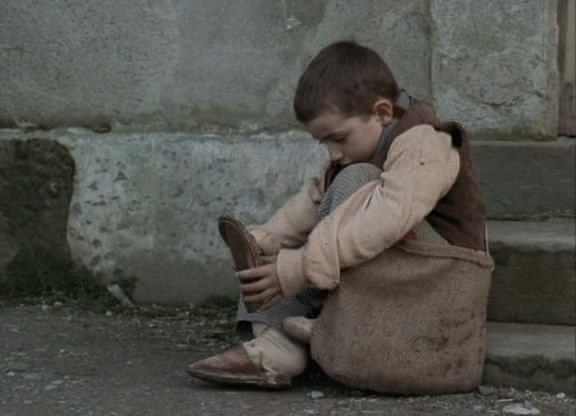
If Jacques Rivette and Theo Angelopoulos might have had an interesting conversation, then the latter and Italian film maker Ermanno Olmi could have had a fabulous running dialog. Both were highly serious, highly accomplished artists who took great and deliberate care in presenting their films, always concerning the plight of human beings in the face of difficult circumstances of some kind. Neither would be rushed nor shortened in their work. Neither would include exploitative or other elements pandering to broad public tastes. Quite likely due to all of this, despite some ecstatic critical notices for both, neither ever had anything like a popular hit.
Sadly, while critics would proclaim Angelopoulos Greece’s greatest living director (maybe just greatest period), too few even knew of Olmi to make such fantastic and rapturous claims (and, admittedly, there is far more competition for best in show in Italy). Too few Olmi films are known outside of his own country but anyone who has ever seen his most critically acclaimed film, The Tree of the Wooden Clogs, will know that they have seen something indeed.
Tree tells a story simple in outline: four peasant farm families live in close proximity on a large but rather mismanaged estate in late nineteenth century Italy. The narrative follows one year in their lives and does so in a most dignified, sympathetic, yet unsentimental way which shows great respect for both the characters and viewers.
No great magical events take place in their lives. In fact, the tree of the title leads one family to a sorrowful event but they and the other families try to find some honest hope in the aftermath. Olmi ably finds a way to convince in relating the character’s routine fight for survival and achieves a stunning sense of time and place. That he also achieved fine performances from a cast of non-professional actors is even more astounding.
Many prominent people in the film industry have sung this film’s praises in addition to the critic’s fine words. Those who have seen it concur. So why have so few seen it? Well, this is not a glamorous film or the kind younger fans and budding professionals will embrace as a “hot” film (such as Fellini’s 1963 masterpiece 81/2). Maybe this one will stay a buried treasure but it is a treasure.
9. La Belle Noiseuse (1991) – 240 Minutes
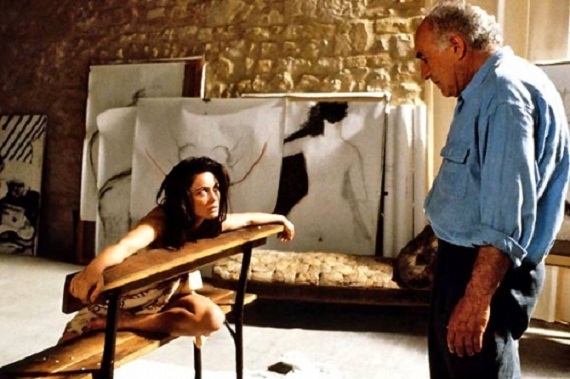
Once again Jacques Rivette is represented on this list. Between Out 1 and this film Rivette had pulled off the near-impossible: he had a hit with a lengthy, experimental, but very fun masterwork entitled Celine and Julie Go Boating (1974), a favorite of feminist viewers/critics, fans of 70s new film cinema and a cult delight. It also is rather like watching a magic show (appropriate since one character is a magician). It was only three hours plus but that’s long enough. Rivette’s next major epic would be a different story entirely.
La Belle Noiseuse (The Beautiful Troublemaker) is technically taken from a Balzac story with cuttings from other works, but, in the end, its pure Rivette. The plot concerns a renowned painter (French film icon Michel Piccoli), now ostensibly retired and living with his wife (British 1960’s film actress Jane Birkin) on a large and lovely historic estate.
A young artist (David Brusztein) comes to visit the artist all full of admiration, respect and hope for some kind of blessing. He brings along his girlfriend (famed French actress Emmanuelle Beart), who is the one to really catch the aged artist’s eye. It seems that he long, long ago abandoned what would have been his final picture, a large scale nude entitled La Belle Noiseuse.
The young woman is the face and form he needed to finish it and he persuades her to pose for him after his many years of inactivity. What follows over some three and half hours is a meditation on art and creativity and the price paid for that creativity by the artist and those in his orbit.
This sounds simple but the film is not, by intention, rich in incident. Rather, the viewer watches as the painting is laboriously brought to life, stroke by stroke (a real painter, with only his hands showing, is actually doing the painting in close-ups of the artist’s work). If one is in the mood, this can be quite exciting. If one isn’t, it can be deadly. Even among the Rivette faithful, reaction has been divided.
As with Out 1, Rivette created a shorter version (two hours) but all agreed that to go with this film at all, the full version must be observed. However, length and subject treatment (and sporadic availability) have tended to keep this one at arm’s length. In the end, its one of those great films that many will only see with a gun to their heads. However, it is a great film and, like many others on this list, worth the work that it requires.
10. Toni Erdman (2016) – 162 Minutes
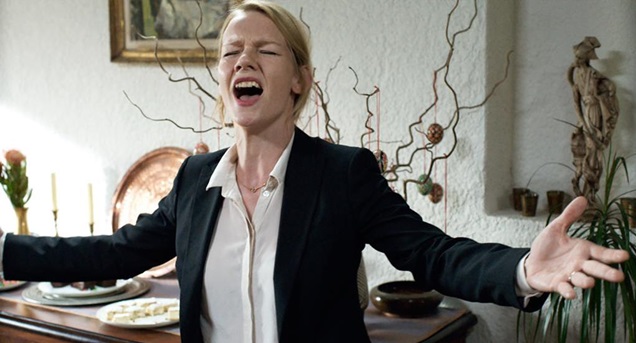
In the last year or so (at the time this article was written) it was rumored that Jack Nicholson would make his long awaited (and desired) return to the screen in a remake of the German comedic hit Toni Erdman. If true, this would undoubtedly be a fine feather (or career seal) for the great Hollywood actor, since the plot and character would be naturals for him.
However, in the way Hollywood remakes tend to do, a bad remake might sully the original and a good one might bury it and either way it would be a shame. Because the film, which, like all good comedies, has serious underpinnings, is considered basically comedic and thus it has a hard enough time being treated as a serious work of art.
The plot is classic farce on the surface: Winifred (Peter Simonischek) is surely the king of the practical jokers. He’s the kind of man who answers the door pretending to be his (non-existant) twin brother in order to see if he wants to receive the visitor and, if so, then pretends to “go and get” himself if the visitor has passed muster. He’s having a great time except for the fact that his never serious nature conflicts with the always serious nature of his beloved daughter Innes (Sandra Huller).
Though their affection for one another is undoubted, their differing ways of life has lead to estrangement. So, in order to combat this, Winifred shows up in the office of the firm in which Innes works in the guise of yet another new identity, Toni Erdman, life coach to the company’s CEO! Innes must now go along with this strange ruse and her father’s outlandish behavior in order to avoid calamity.
Anyone who knows the basic nature of comedy knows that it takes a lot of skill to turn what might be grim on tragic under other circumstances into something fit for laughter. Why, then, is comedy so often taken so lightly? Part of that answer may be the subjective nature of comedy. If a viewer doesn’t basically get a film then all the praise and explanation regarding its virtues is useless. While many loved Toni Erdman, some did not.
Also, traditional wisdom dictates that successful comedy should be brief and this one runs some 162 minutes! (This is a short subject compared to some on this list but still quite long for a comedy.) No one doubts that director/writer Maren Ade has skill and talent but time will have to tell if this film is allowed to be appreciated and to endure.
Author Bio: Woodson Hughes is a long-time librarian and an even longer time student/fan of film, cinema and movies. He has supervised and been publicist for three different film socieities over the years. He is married to the lovely Natalie Holden-Hughes, his eternal inspiration and wife of nearly four years.